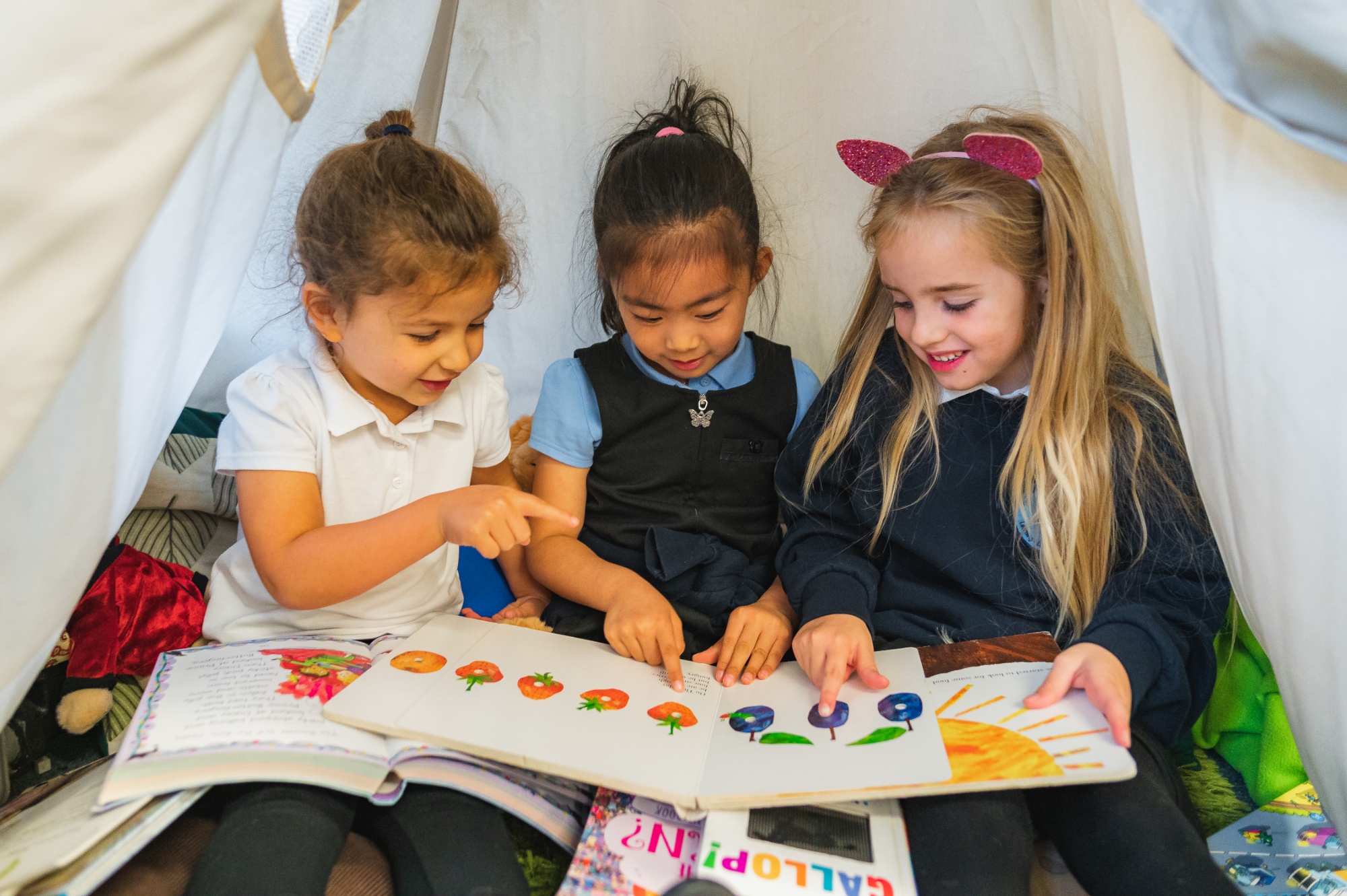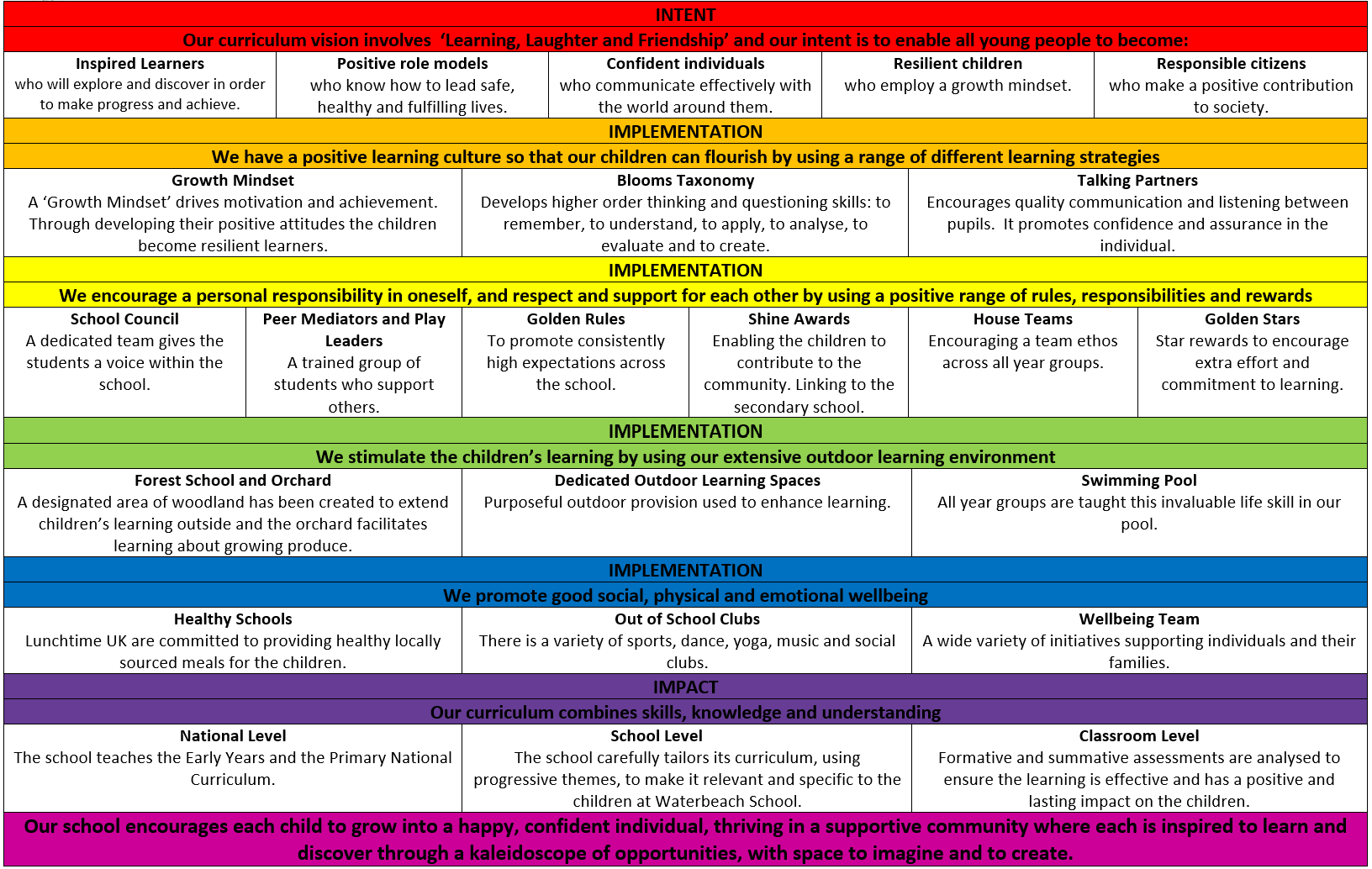
Curriculum
- Home >
- Curriculum >
Our Vision
Our school encourages each child to grow into a happy, confident individual, thriving in a supportive community where each is inspired to learn and discover through a kaleidoscope of opportunities, with space to imagine and to create.
Our Curriculum
Our curriculum is far more than the just the academic subjects prescribed by the National Curriculum 2014. “The Big Picture” encompasses our focus on developing every individual child and enabling them to be the best that they can be. Please click on the link below to see the rainbow of opportunities we offer children at our school.

Curriculum Captures
How do we organise what we teach? The long term plan for each year group (accessed by the tabs) shows the learning expectations for each term. The Curriculum Captures have been written to show you exactly what the children are learning in school. There are termly Captures for each subject and they can also be found by clicking the year group tabs at the side of this page.
Each Capture is one page long and may contain pictures, knowledge, vocabulary and events that teachers will be teaching your children. They have been written, by the teachers, to allow you to help your child to share their knowledge as well as giving you the opportunity to support their learning at home. We hope that you find them useful and that you enjoy sharing your child's learning.
Our Waterbeach Curriculum
Our curriculum is unique for our children at Waterbeach, we have considered important themes relevant to their lives and the area in which they live. These themes run throughout the school and they are:
- Farming (colour code brown) – Agriculture is a major industry in East Anglia and a variety of the ways that land is used in farming is all around us. Farming threads throughout all cultures in history ranging from the ancient civilizations, to the labour intensive farms of pre-industrialisation up to the modern, scientific farming of today.
- Structures (colour code pink) – we live in one of the fastest developing areas in the UK with thousands of new homes being built in the local area. The materials homes have been built from and how communities come together through different human settlements has changed over time as populations have changed and increased and the children will study the impact of this.
- Environment (colour code green) – our planet is in danger and our children care about this. This theme will be threaded through different subjects educating them from an early age on the responsibility for caring for our planet and the environment we live in.
- Healthy Living (colour code orange) – keeping active, eating a balanced diet, looking after their mental health and building their confidence is essential for equipping them to grow into strong, healthy, happy individuals.
An example of how the farming theme threads through the different year groups:
In Reception the children learn about different farmland animals.
In Year 1 in science, they will learn about how seasonal changes effect farms and local farm produce with a visit from a local farmer.
In Year 2, the children will look at the geographical features of the local agricultural area.
In Year 3, the children will study the science behind different rocks and soils and look at the particularly fertile soil of the fenland area. In studying the history of their local area, they will visit the historic Denny Abbey Farmland Museum. The area around Denny Abbey has been farmed for almost 2,000 years and the children will look at how the area was farmed in the past.
In Year 4, the children study how important farming was to the Tudors, where 90% of the population lived in rural farming communities.
In Year 5, the children will study WWII which will cover the ‘Dig for Victory’ campaign and in Year 6, the children will look at how important and essential farming was to ancient civilisations such as the Ancient Egyptians.
PLEASE CLICK ON THE 'YEAR GROUP CURRICULUM' LINK TO FIND OUR DETAILED PAGES THAT SHOW YOU WHAT THE CHILDREN ARE LEARNING IN SCHOOL.
